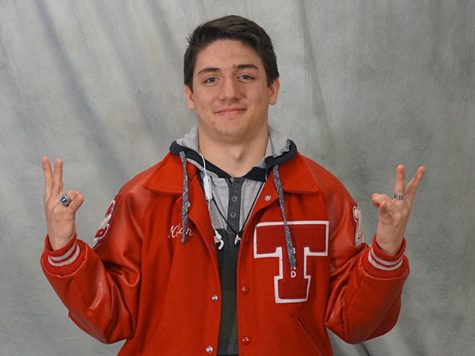Should students talk to counselors more than friends?
April 27, 2017
At the beginning of every year, counselors are assigned to every student. These counselors are assigned for a good reason: to provide students with guidance and advice.
“Basically, our role is to be an advocate for you guys (students),” Counselor Hill said, “We’re here for you, we’re here to support you in any way that you need as you navigate through High School.”
The students are often reminded to go to their counselors or someone in the Career Center to turn in their schedules or scores from some important test, but are they ever reminded to go to their counselors for social and emotional advice? School officials can also put up fliers around the campus to remind students in the halls that they can talk to their counselors about anything they feel the need to talk about.
“We can help with either the academic side; that being classes, making sure you (students) get all your credits so you can get to graduation,” Hill said, “We can also help with the college and career side; that could be helping with planning for your future, finding out what you are good at and what you like and help you make decisions there.”
“We’re also here to support kids emotionally,” Hill said, “If they’re going through hard times at home or having stress and anxiety over school or anything else, so, we are here for a number of different reasons.”
Now, if a student comes from a rough home or family that doesn’t teach them right from wrong, they don’t know how to express themselves with respect. The way a child is raised is how they act as they grow up because that’s all they know. If a student doesn’t go to their parents for advice, their only options are their friends or their counselors.
This can be because the students may not trust their parents enough to talk to them for advice and expect to learn everything from their peers.
If anything, peer groups should be encouraging each other to be able to talk to their counselors for anything going on in their lives; not just advice on what classes they’ll be taking the next school year or how they can get into college after they graduate.
Students cannot be forced to go to them, but they can at least be reminded to try and seek their guidance if they don’t know who else to go to for ways to get out of certain struggles.
“A lot of times it does help to get an adult perceptive. To give some advice because even though y’all might not like to hear that, we’ve been there, done that.”
Counselor Hill gave some insight to this topic and gave some useful information to who and what counselors are for the students here at THS. Along with how they can help out with students with emotional and social situations aside from helping them out with finding out what they want to do with their future.
Those struggles could include: seeking jobs, issues with peers/family, grades, or just life advice in general. Students should know that they don’t have to go to their counselors for just schooling advice, but for any kind of advice to do with anything going on in their lives.
“I know that when I was going through high school I can’t remember one single time I saw my counselor. So we try really hard to pull y’all in at least once or twice a year on our account just to meet but whenever y’all request to see us, we want to see you too. Just know we’re there for you, and help you get where you’re going.”
To talk to your counselor, just come in and sign up at Career Center at the cafeteria. They’re open anytime and speaking to your counselor will be done immediately, unless a meeting is going on at the moment. If they can’t get you immediately, you counselor will send down a pass in your class to have a meeting with you.












